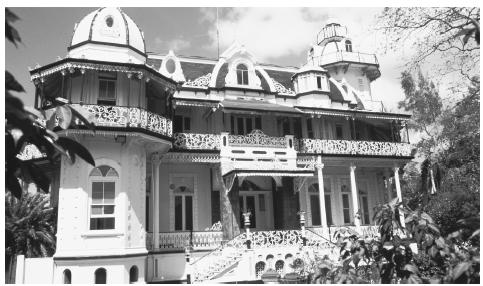History
Trinidad and Tobago was "discovered" in 1498, when the Italian explorer Christopher Columbus landed on our shores. In reality, we were already "found" and occupied by the indigenous Amerindian tribes of the Arawaks and Caribs.
 Trinidad remained in the hands of the Spanish from the 15th Century. Tobago, by contrast, was ruled at one time or other by a myriad of European powers, including the Spanish, Dutch, French and British. Tobago, too, was decreed a British colony in 1814, and the Crown enjoined us administratively in 1889. Trinidad and Tobago achieved independence from England in 1962 and became the Republic of Trinidad and Tobago in 1976.
Trinidad remained in the hands of the Spanish from the 15th Century. Tobago, by contrast, was ruled at one time or other by a myriad of European powers, including the Spanish, Dutch, French and British. Tobago, too, was decreed a British colony in 1814, and the Crown enjoined us administratively in 1889. Trinidad and Tobago achieved independence from England in 1962 and became the Republic of Trinidad and Tobago in 1976.
A visit to Trinidad today would reveal a multicultural melting pot stirred by the descendants of settlers from Europe, Africa, Asia, South America and the Middle East. But in 1498, when explorer Christopher Columbus set foot on Trinidad, things were very different.
Arawak and Carib Indians prospered here on the island the Amerindians called Ieri, land of the Humming Bird, until Columbus spotted the island he named for the Holy Trinity. When the Spaniards discovered no precious metals on Trinidad, the Amerindians were enslaved and shipped off to work on other Caribbean settlements.
Nearly a century would pass before Spain established Trinidad's first European community, San Jose de Oruna (St Joseph), which was sacked and burnt by Sir Walter Raleigh in 1595. Sir Walter Raleigh was also said to have discovered the Pitch Lake, from which he used material to caulk his leaking ship.
Trinidad remained a Spanish possession from the 15th Century and the Cedula of Population in 1783, allowed French planters and their slaves to emigrate from the French colonies to the island. The British would capture Trinidad in 1797 and negotiate an amicable treaty of rule with the Spanish.
In the following years, enslaved Africans were brought in to work on sugar plantations and in 1802, the island became a British colony. After slavery was abolished by Britain, landowners imported thousands of indentured labourers from India, China and the Middle East.
In 1889, Britain joined the smaller Tobago to Trinidad as an administrative ward. The islands achieved independence from England in 1962 and became the Republic of Trinidad and Tobago in 1976.
More Details
- Trinidad Carnival 2015
- Trinidad Carnival 2013
- Trinidad Carnival 2014
- Trinidad Carnival Dates 2012-2020
- Trinidad Events Calender 2012-2030
- Trinidad Carnival Dates 2009
- Trinidad Easter 2014
- Trinidad Easter 2013
- Diwali in Trinidad and Tobago
- Trinidad Diwali Calendar 2000-2020
- Public Holidays 2013 - 2014
- Trinidad 2012 Calender
- Trinidad Latest Events News
- Getting to Trinidad and Tobago
- Trinidad and Tobago Climate
- Things to do in Trinidad
- Trinidad and Tobago Airports
- Advertise With Us
Trinidad Events
- Keiyana Marie Trinidad: PVD Fest 2025 - Taunton Daily Gazette
- Keiyana Marie Trinidad: PVD Fest 2025 - Taunton Daily Gazette
- Connecticut Magazine Events - Tori Costa / Keiyana Marie Trinidad @ Myrtle - New Haven Register
- Connecticut Magazine Events - Tori Costa / Keiyana Marie Trinidad @ Myrtle - New Haven Register
- Connecticut Magazine Events - Tori Costa / Keiyana Marie Trinidad @ Myrtle - Greenwich Time
- Delivering Events With Purpose, Soca’s Shurwayne Winchester Partners With Schools for Better. - Ebuzztt.com
- Govt glad other Independence Day events planned fireworks - Trinidad Guardian
- No parade, no problem: Steelpan brings out Trinidad and Tobago's Independence spirit - Trinidad and Tobago Newsday
- Young athletes shine at #GirlsRunTT 6K, 1K Cross Country events - Trinidad and Tobago Newsday
- Hannah Dasher - Trinidad Express Newspapers
